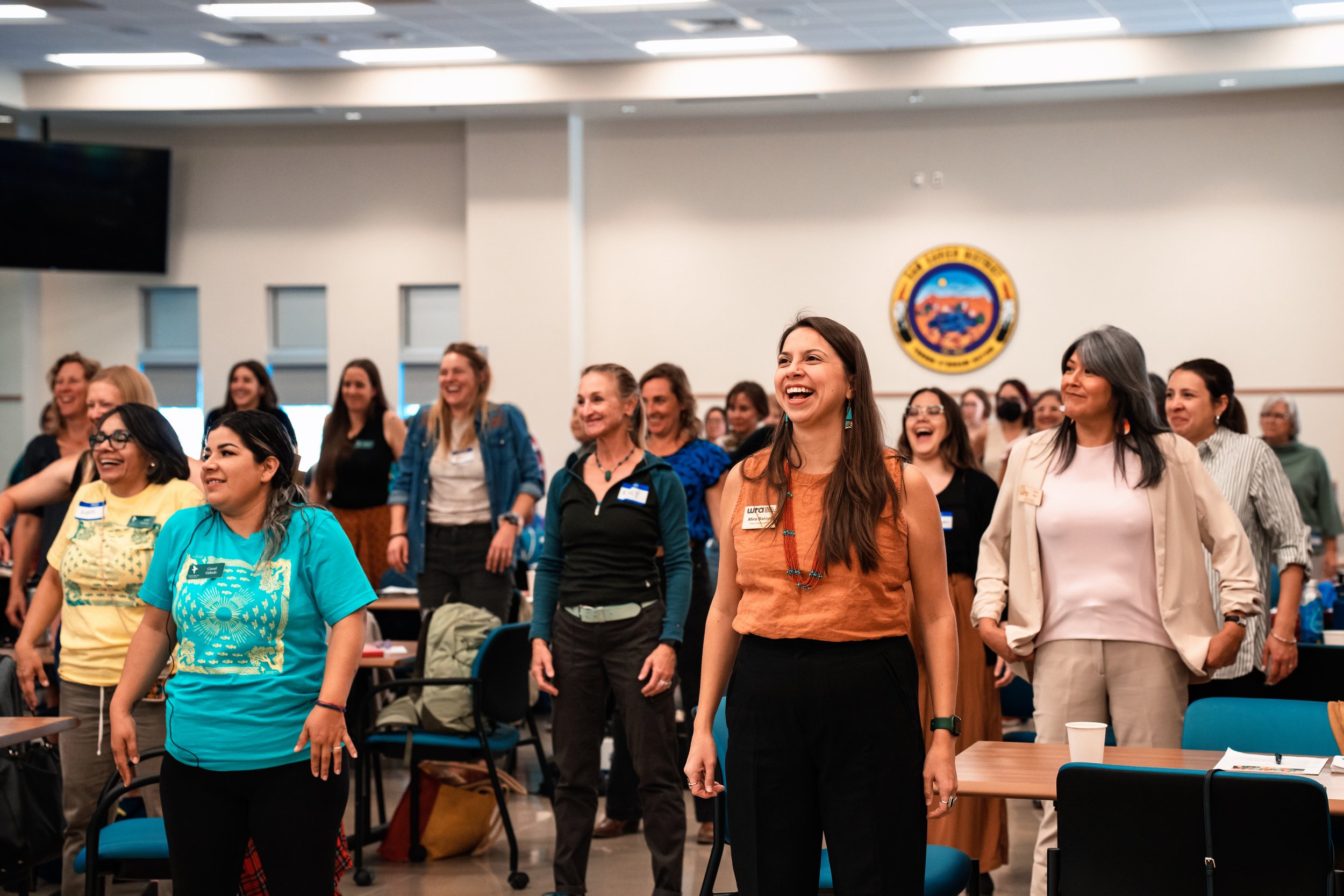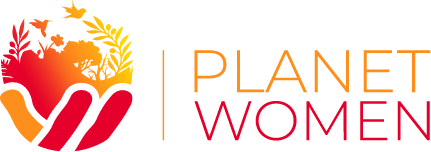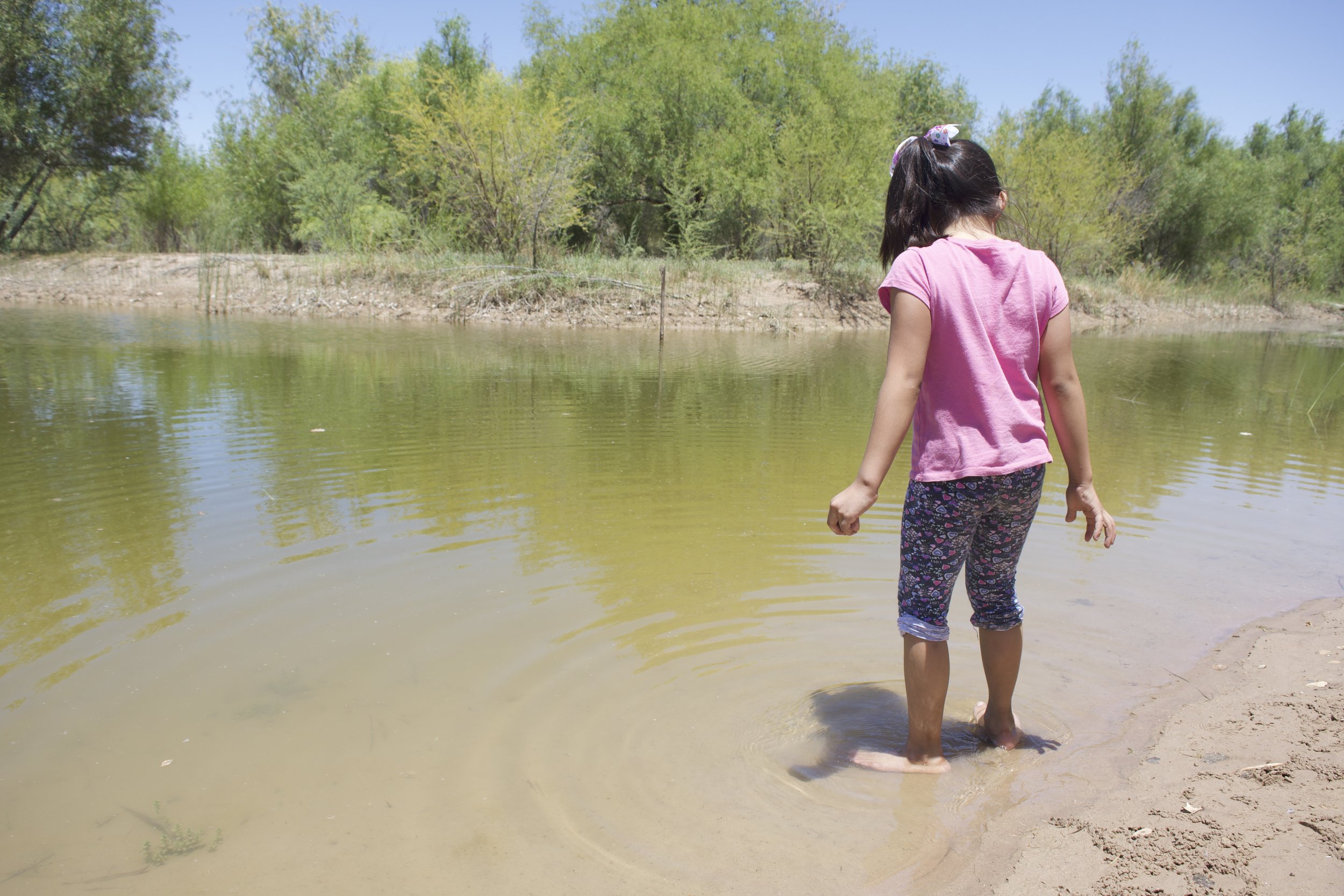
Colorado River Basin
and American West
The Colorado River Basin and American West is one of Planet Women’s three ecological focus areas.
The monumental lifeline that is the Colorado River has carved canyons and sustained cultures and wildlife for millions of years—yet now it’s in peril. The Colorado River runs from the Rocky Mountains through seven U.S. states and into Mexico where it historically flowed into the Gulf of California. Today, the river rarely makes it that far. Demand for water exceeds the river’s capacity. Water flows are increasingly inconsistent. And the past 20 years of megadrought have further threatened the system.
Researchers estimate that Arizona, California, and Nevada will have to cut their use of Colorado River water by 40% over the next 30 years due to climate-driven drought. To save this important river and the 40 million people that depend on it, a holistic approach and more diverse voices are needed.
In 2026, a number of important agreements governing the Colorado River are set to expire, so new agreements will be negotiated. These deadlines mean new opportunities for engagement such as legislation, particularly Universal Access to Clean Water for Tribal Communities. This is a critical moment to ensure all voices are heard and that nature’s needs are accounted for alongside the needs of Tribes, local communities, agriculture, and industry.
Since 2020, Planet Women has provided grants to local and regional organizations working on gender equity, climate resilience, equitable water management, forest and river restoration, wildfire management, and Indigenous leadership and cultural preservation in the Colorado River Basin as well as in Northern California, Nevada and Oregon.
Additionally, we co-host an annual Women and Water Convening for Indigenous women and allies working in the water sector in the Colorado Basin. The Third Annual event will be co-hosted by multiple entities of the Navajo Nation and take place in November 2025 in Tuba City, AZ, Navajo Nation.
The Women and Water Convenings are part of Planet Women’s broader strategy in the Colorado River Basin. Through these gatherings, along with our grantmaking to local organizations, and our leadership programs in the region, we aim to:
Increase the participation of women, especially Indigenous and local community members, in decision-making processes related to water management and conservation, including negotiations for the post-2026 guidelines for the Colorado River Basin.
Strengthen collaboration and knowledge exchange among diverse stakeholders, addressing short-term challenges and enabling a transition to long-term sustainability in the Colorado River Basin.
Implement women-led habitat restoration projects, enhancing ecosystem health and resilience in the face of climate change.
Photos courtesy of Rabi Hernandez/Sonoran Institute.
Quick Facts and Stats
1,450 Miles
The Colorado River spans 1, 450 miles from the Rocky Mountains to the Gulf of California, crossing seven U.S. and two Mexican states.
The Colorado River Basin has faced a mega-drought since 2000, and this has had significant impacts of the environmental degradation of the Basin.
30 Indigenous Tribes
There are 30 federally recognized Indigenous Tribes in the basin. The longstanding issue of water allocation and access for Indigenous communities persists today. Currently, 20% of the basin's water is allocated to federally recognized Tribes.
There are also numerous Indigenous Tribes that are not recognized by the U.S. government, and therefore are not given an active voice in this conversation.
40 Million People
People rely on the Colorado River for water and it powers an energy grid that spans from Arizona to Wyoming. About 70% of the water from the Colorado River is used for farmland, and thus sustains the agricultural economies of these states.
2026
The year when a number of crucial agreements governing the river, known as the Colorado River’s “2007 Interim Guidelines” and the Colorado River facilities “operating guidelines,” are set to expire.
Thank you to Aayla Kastning & Anika Srikanth for highlighting the work of women in the Basin through their research project, Shescape of the Colorado River Basin, created in collaboration between the Institute for Integrative Conservation at the College of William & Mary and Planet Women.
Working in the Colorado River Basin
with Emma Robbins, Planet Women’s CEO and Kristine Zeigler, Planet Women’s Co-Founder and Special Advisor.
Grant Partners
These organizations have received funding from Planet Women since July 2020.
Grantee Project Examples
Indigenous Peoples’ Burning Network
How to manage fire effectively is a question more and more communities are asking. Ecological records and oral Indigenous history confirm that fire played a vital role in shaping healthy ecosystems for thousands of years. Planet Women’s grant spurred the creation of a new program, the Indigenous Women’s Fire Exchange. The exchanges include prescribed burning for cultural objectives, networking with next generation fire leaders, connecting with ancestral territories, and fire-related strategic planning. See more.
Sonoran Institute
Through Sonoran Institute, Planet Women donors have funded work on both sides of the border—from habitat restoration in Mexico to nature-based solutions to water conservation in the United States. Funding has supported efforts to restore the native habitat and revive the riparian ecosystem in the delta and other parts of the Colorado River and its tributaries. And, to provide nature education for local students, families and Indigenous communities through outdoor activities at their restoration sites, in person talks and workshops, as well as through their free, online courses. Learn more.
Indigenous Women’s Leadership Network
In 2021, a multi-generational team of Indigenous women in the Colorado River Basin worked with the Water & Tribes Initiative to establish the Indigenous Women’s Leadership Network (IWLN). Planet Women had the privilege of being one of the seed funders of the IWLN in 2021 and we are very proud to continue to be one of the core funders for the organization today.
The IWLN serves Indigenous women working on environmental issues in the Colorado River Basin, particularly Tribal water issues. Their purpose is to mentor, inspire, and support Native American women, exchange knowledge, hone leadership skills, and facilitate a succession of Native women in positions of leadership in their community. Read more.
Join the movement for a healthy Colorado River
Stories
-

Four Things You Can Do Now for the 2025 Colorado River Deadline
A number of crucial agreements governing the river are set to expire in 2025-2026. Together, there is a lot we can do to make the most of this critical moment for the Colorado River Basin. Here are four ways you can help.
-

A Women & Water: A Historic Convening on the Colorado River
Started in 2023, the Women & Water Convening is an annual gathering to address water issues in the Colorado River Basin through inclusive, community-driven approaches. Combining networking, knowledge exchanges, Indigenous knowledge, Western science, and the arts, this is a gathering like no other. Learn more.






